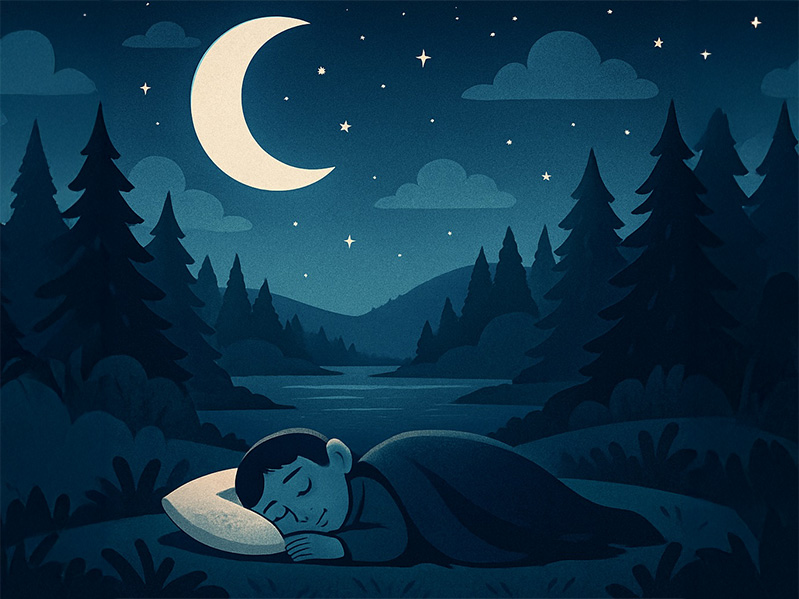How Sleep Affects Mental Health
Sleep and mental health are deeply connected. Poor sleep can make existing mental health issues worse, while mental health struggles can mess with your sleep patterns. It’s a cycle that can leave you feeling drained and anxious, affecting your day-to-day life.
When you sleep, your brain does some serious work. It processes memories, regulates emotions, and removes toxins. Without enough rest, these vital functions don’t happen as effectively, and your mental health can suffer.
Sleep helps your brain deal with stress and emotions, giving you the mental clarity you need to face challenges. When you don’t sleep enough, the part of your brain responsible for making decisions and staying calm — the prefrontal cortex — doesn’t work as well. This can lead to poor concentration, rash decisions, and a much shorter temper.
Without proper sleep, people tend to react more intensely to negative situations, making things like anxiety or depression harder to manage. On the flip side, getting enough sleep helps you stay emotionally steady and better handle stress.
Sleep and Depression/Anxiety
Lack of sleep is often linked to mental health conditions like anxiety and depression. In fact, one of the first signs that something’s off mentally, can be insomnia or trouble falling asleep. Sleep problems mess with your brain chemistry, which can lead to feelings of sadness, hopelessness, and irritability.
Building good sleep habits, such as sticking to a regular sleep schedule and creating a calm environment before bed, can go a long way in reducing the impact of stress, anxiety, or even mild depression. It’s all about making sleep a priority to support your mental well-being.
If you’re struggling to get quality sleep despite your best efforts, it might be time to talk to a counsellor. They can help you get to the bottom of why you’re having trouble sleeping, whether it’s stress, anxiety, or other mental health issues that are keeping you up at night.
One common approach counselors use is Cognitive Behavioral Therapy (CBT). This therapy targets the thoughts and behaviours that are messing with your sleep and gives you practical strategies to turn things around. Unlike sleeping pills, CBT helps you build long-term habits for better sleep without any side effects.
In addition, counsellors can teach you mindfulness and relaxation techniques as well as ways to manage stress, which can make it easier to wind down at night.
Practical Tips to Prioritize Sleep
To improve your mental health, it’s important to prioritize sleep. Here are some easy tips:
- Stick to a regular sleep schedule, even on weekends.
- Create a calming bedtime routine — read a book, meditate, or take a warm bath.
- Limit caffeine and alcohol, especially in the evening.
- Make your bedroom a sleep-friendly zone — dark, quiet, and cool.
- Avoid screens for at least an hour before bed, as blue light can mess with your body’s natural sleep rhythm.
- Manage stress with activities like yoga, meditation, or journaling.
Sleep isn’t just for physical rest — it’s crucial for mental health too. A good night’s sleep boosts cognitive function, helps regulate emotions, and builds resilience against mental health challenges. By making sleep a priority and getting professional help when needed, you can improve both your sleep and your overall mental well-being. If you struggle to sleep, reach out to our intake department to be matched with a counsellor.


